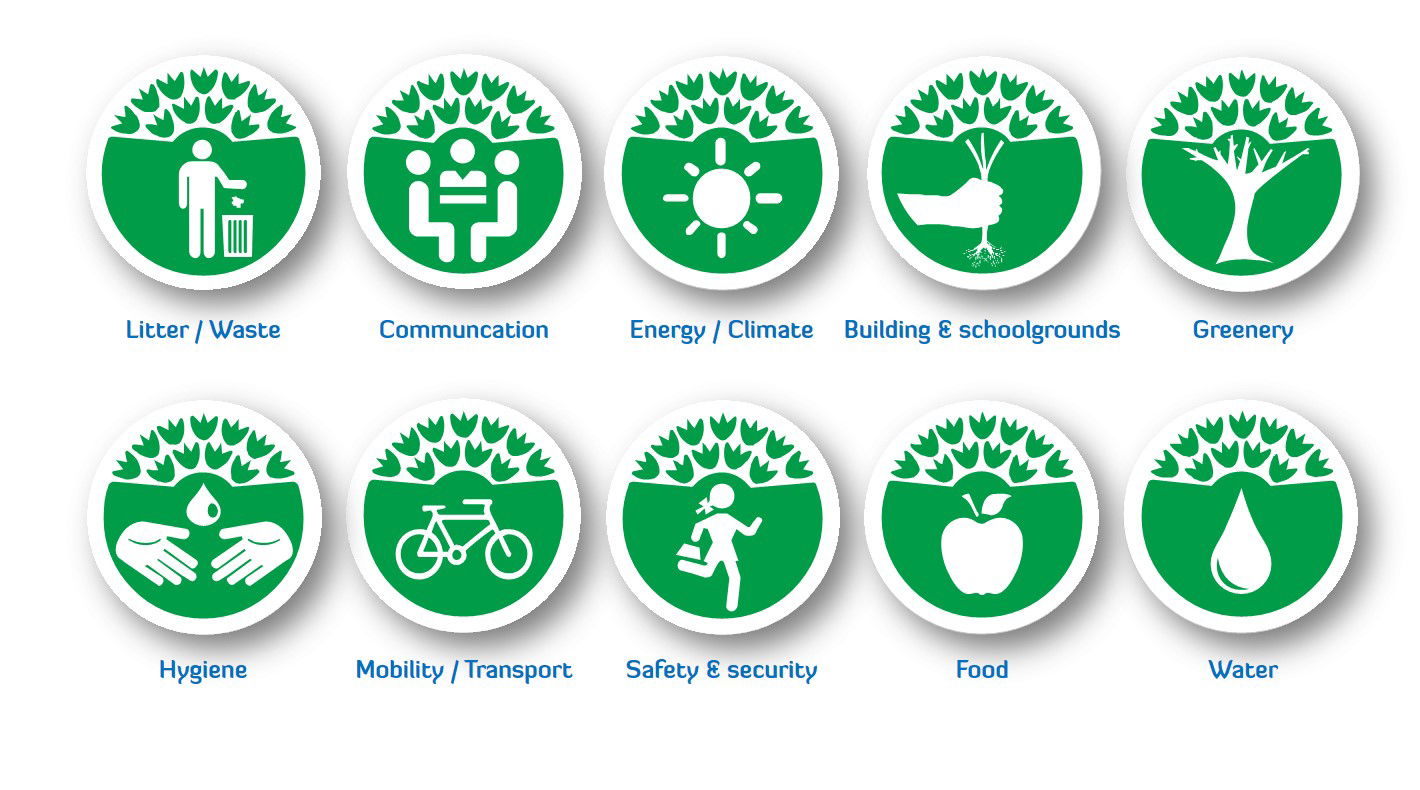
Eco-School Themes
While the Seven Steps and the Seven-Step methodology are the most important aspect of the Eco-Schools programme, working with Themes can also be a great help in giving the programme even more structure.
For the purpose of the Environmental Review there are 12 main Themes. These are:

Biodiversity & Nature
Examines the flora and fauna present in the school environment and suggests ways to increase the levels of biodiversity around the school and raises the pupils’ awareness of biodiversity and nature.

Climate Change
Examines the impacts we have on the Climate through our lifestyles and how our actions can influence the situation in a positive way.

Energy
Suggests ways in which all members of the school can work together to increase awareness of energy issues and to improve energy efficiency within the school.

Food
Encourages young people, their parents, and the whole community to take responsible food-related choices and actions that protect the environment, promote human rights, and improve the wellbeing of society - every day.

Global Citizenship
Examines what our rights and responsibilities are on a National, European and Global scale and encourages staff, students and parents to look at the impacts our consumption habits have on other parts of the world.

Health & Wellbeing
Encourages schools to promote the health and wellbeing of young people and the wider community and to make environmental connections to health and safety.

Litter
Examines the impact of litter on the environment and explores practical means for reducing and minimising the amount of litter produced by the school.

Marine and Coast
Teaches children about local and/or global coastal and marine habitats, how people are affecting these habitats and what we can do to protect them.

School Grounds
Encourages schools to introduce children to the natural environment and to biodiversity in a practical way by offering a safe and potentially exciting facility for outdoor education that can complement classroom-based activities.

Transport
Suggests ways for pupils, staff and local government to work together to raise awareness of transport issues and come up with practical solutions that will make a real difference to pupils’ everyday lives.

Waste
Examines the impact of waste on the environment and explores actions to minimise the amount of waste that we produce and dispose of on a daily basis.

Water
Provides an introduction to the importance of water both locally and globally and raises awareness of how simple actions can substantially cut down water use.